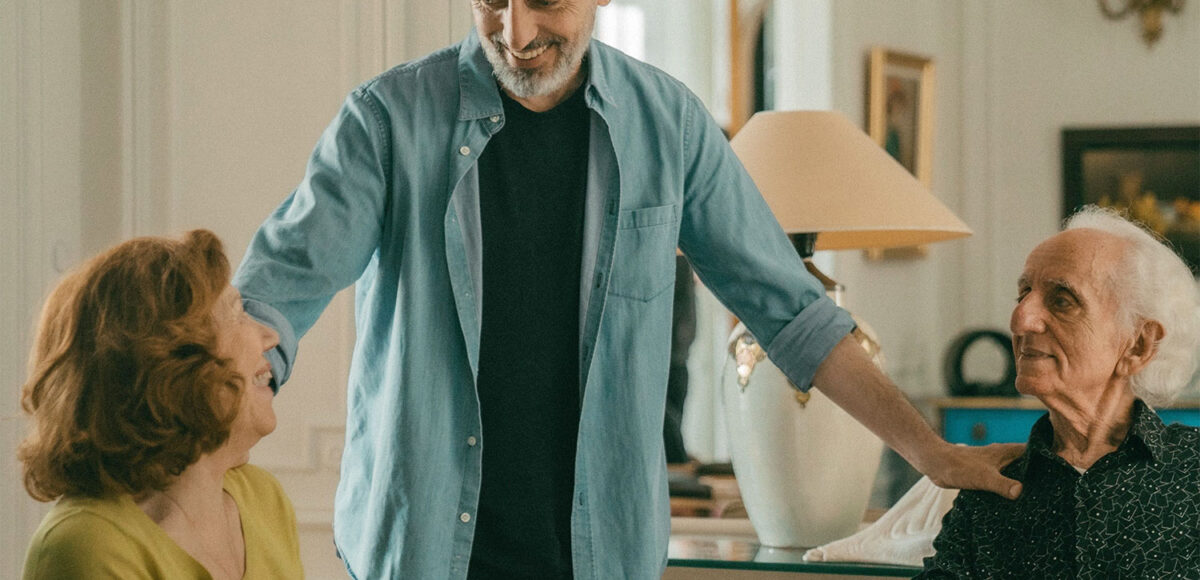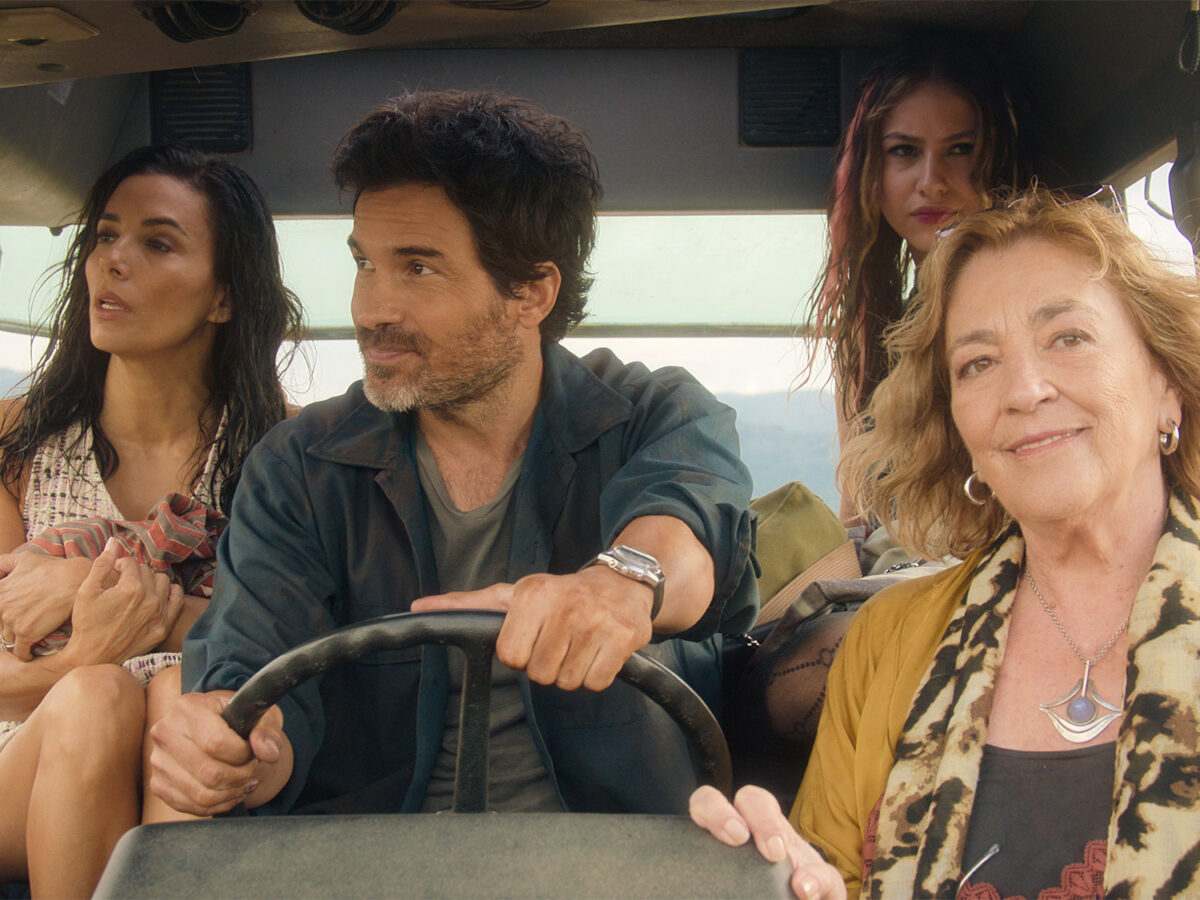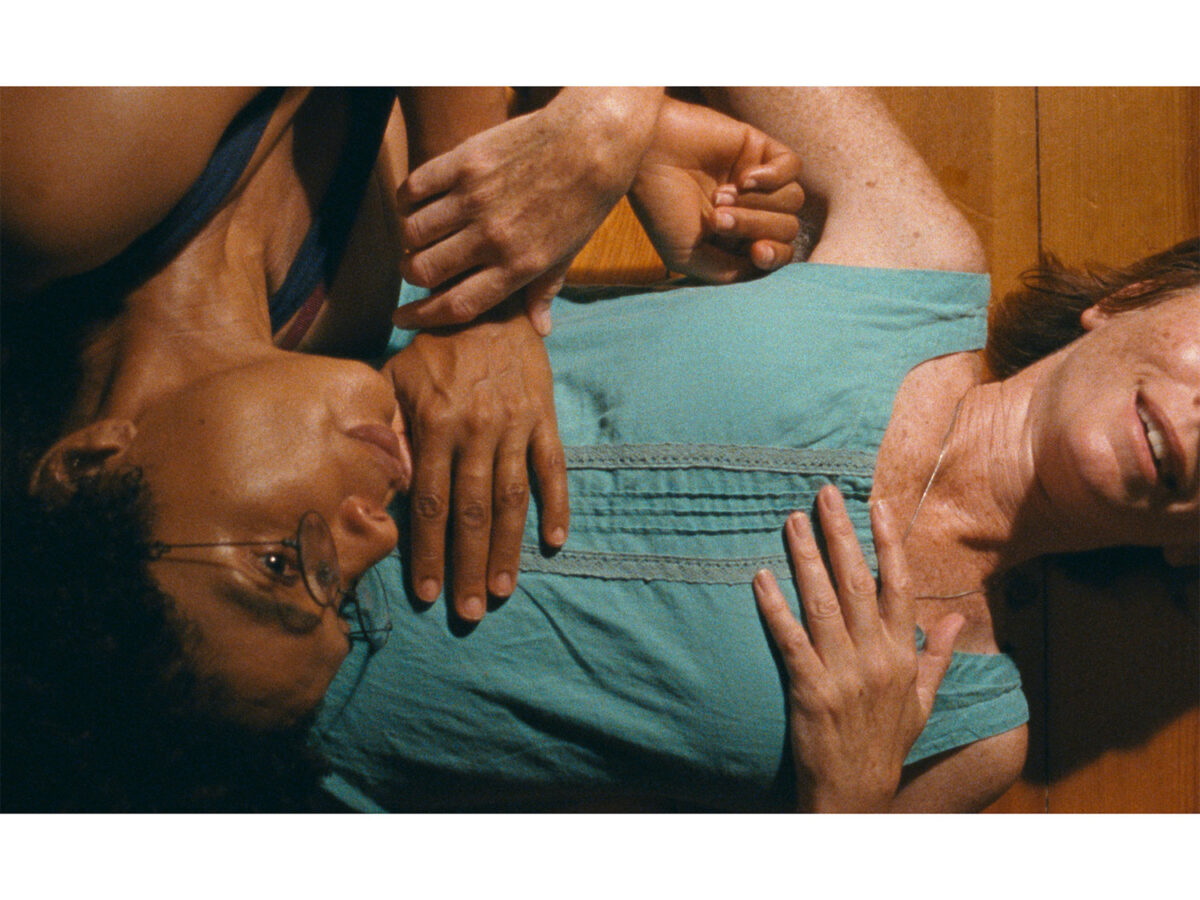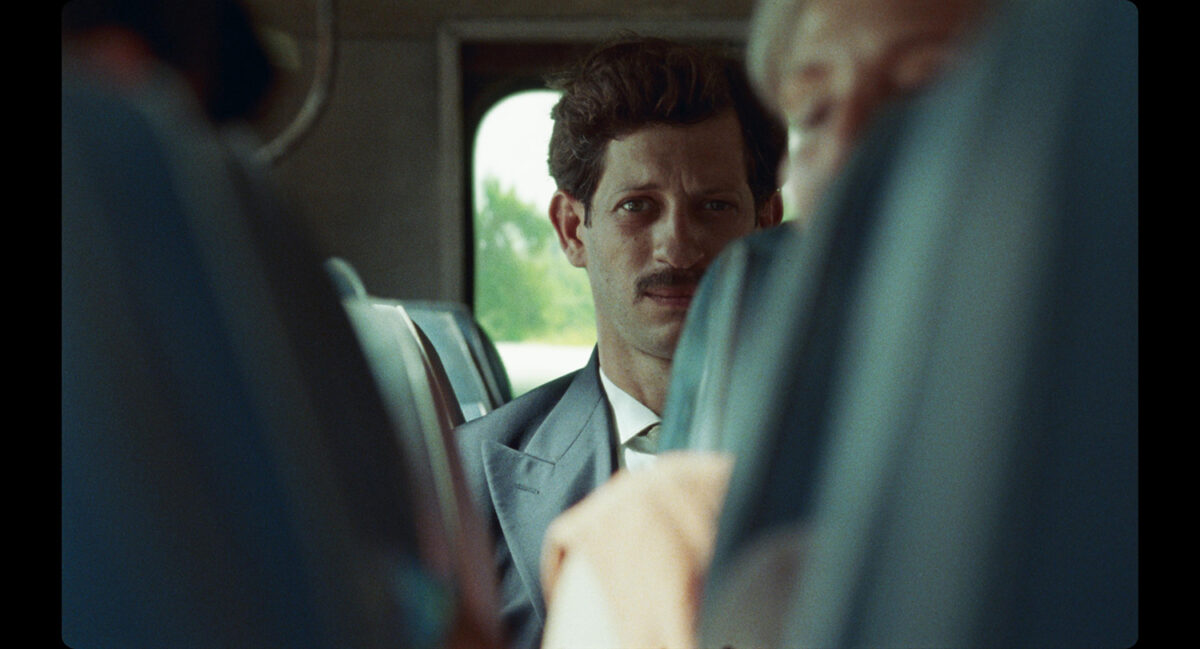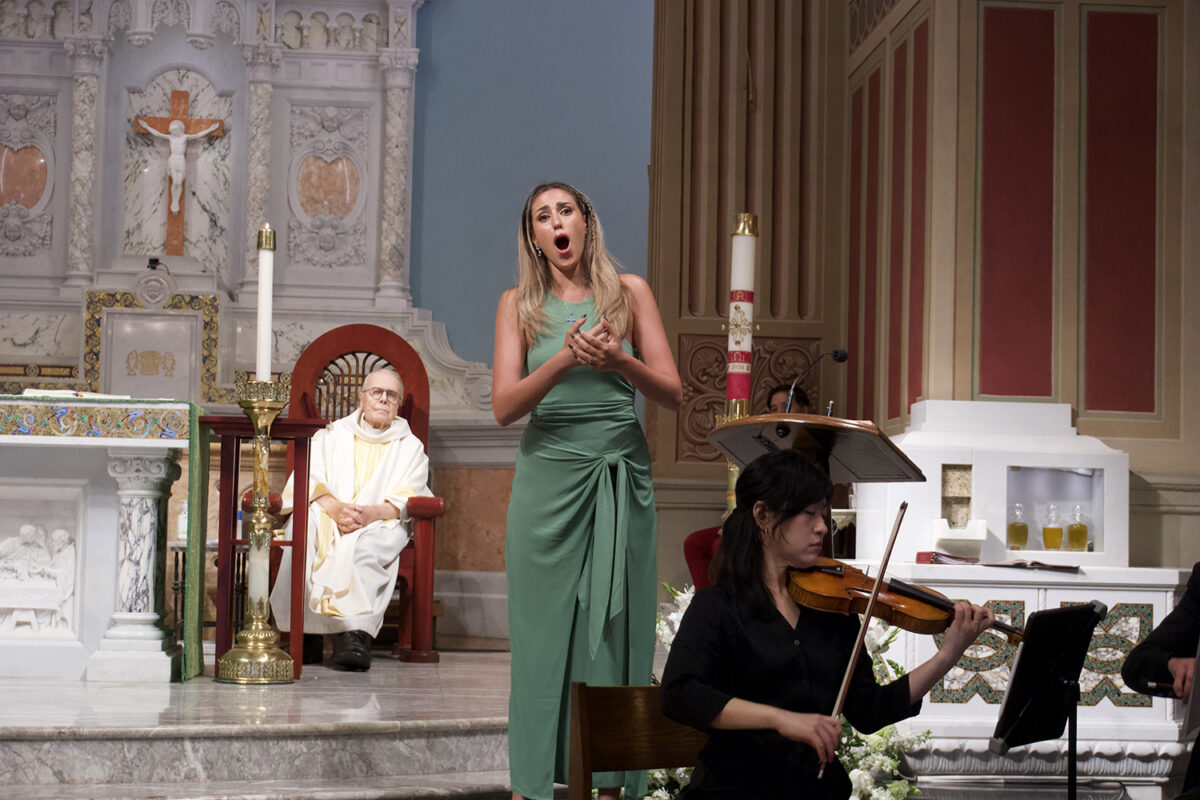I love a good surprise, especially in a film. It comes at you unexpectedly, gathering you up in the avalanche of revelation. “Stay with Us” is just that, an epiphany that melds with the one felt by the main character. And that main character is Gad Elmaleh, France’s most famous comedian, and this is his personal story, dripping with laugh out loud moments, poignancy, sincerity, anger and, most of all, belief.
Obvious from the opening, when a home movie of a wide-eyed very young Gad stares into the camera, already performing for his onlookers, this is a very personal film. He was born in Casablanca, Morocco and grew up surrounded by Jews, Muslims and Catholics, in sight of synagogues, mosques and churches. But the Muslim and Jewish parents all exerted one rule on their children: never set foot in a church. To paraphrase Newton’s third law, for every command there is an equal and opposite reaction. But more on that later.
Gad, now very famous and living in New York, has returned to Paris, ostensibly to visit his parents and celebrate his 50th birthday, but with a greater, more lofty goal that he keeps secret. His parents, David and Régine, are thrilled to have him home and refuse to let him decamp to a hotel. Unable to resist his mother’s arguments, he sets up in the “kid’s” room, a tiny space still filled with stuffed animals and a bed that is 4 inches too short for his frame. Ill at ease over his subterfuge, he meets friends at a favorite cafe where he discusses his dilemma.
Gad has decided to convert to Catholicism. He is back in Paris for his baptism but cannot find a way to tell his parents. His fear is justified. Seeing his open suitcase on the bed is too big a temptation for his mother. Rifling through his things, she comes across a towel-wrapped statue of the Virgin Mary. In shock, she nearly drops it. Calling David, he has an alternative explanation when seeing some of the clothes. This must be someone else’s suitcase because Gad would never wear a shirt like the one on top. Their relief is short-lived when he turns up at dinner in that very shirt.
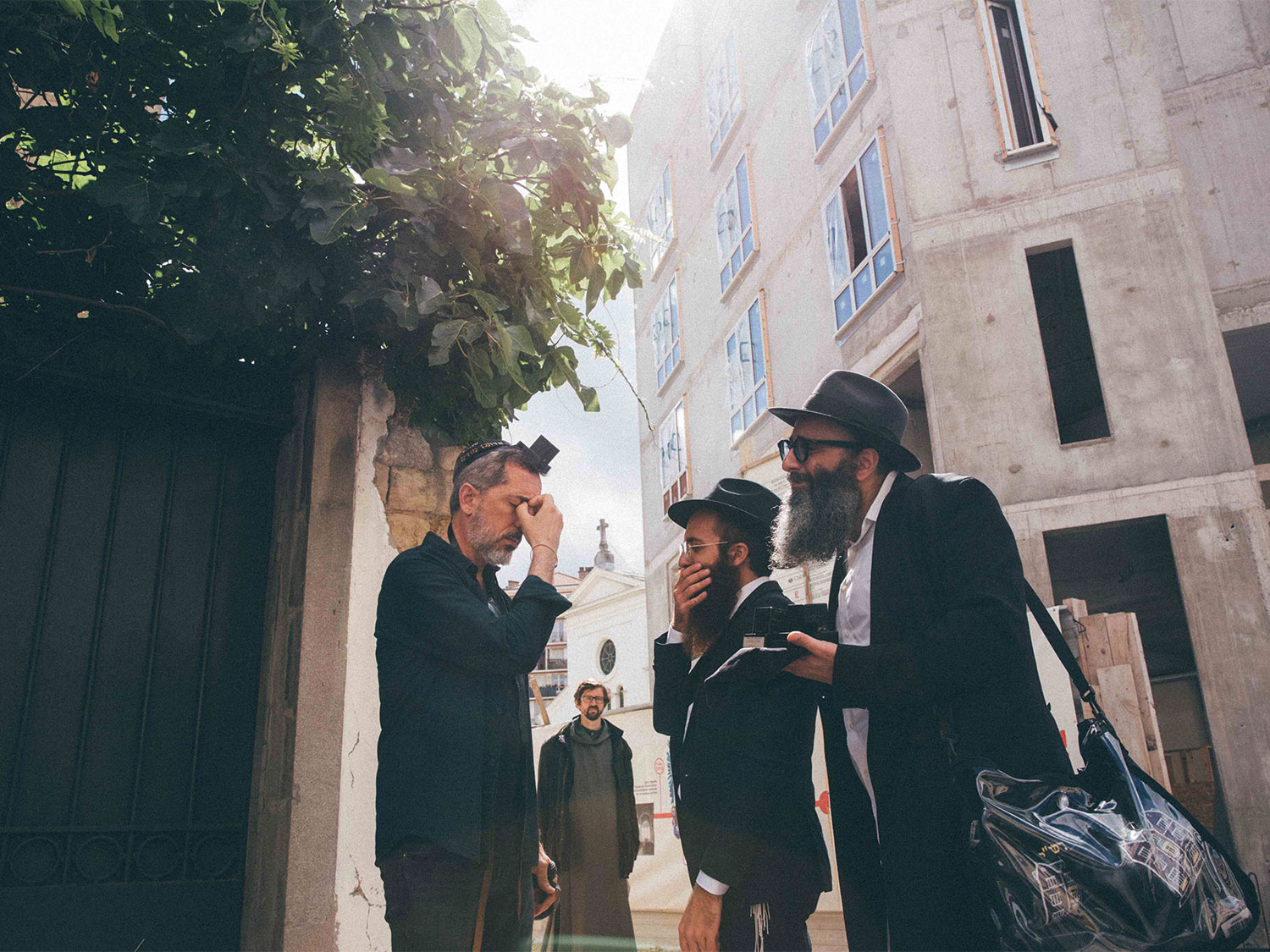
Photos courtesy of Film Movement
Sturm und Drang is, perhaps, the closest term to describe the emotion, upset and anger expressed by his parents. Now he must come clean. He has found himself more and more drawn to the spectacle and iconography of Catholicism, a religion he has been studying for some time. He has felt a special connection to the Virgin Mary who, he explains, has been watching over him, maybe even from the first time he illicitly entered a church in Casablanca, interdiction notwithstanding.
The Elmaleh family, Sephardic Jews, are strict traditionalists, go to temple, read the Torah, consult regularly with their rabbi and share Shabbat dinner with Gad’s sister Judith, her husband William and their son. It is how Gad was raised and never was there an indication that he was in need of an alternative. It must be New York or new friends or some insidious outside force.
No, Gad explains, it is a need to bring Mary fully into his life and add a different dimension to his belief structure. He has come back to complete this circle and be baptized.
Régine’s and David’s reactions are totally understandable. As they say to him, “You change your God, you change your parents.” What did they do wrong? How has he come to worship a false idol? Gad has a story to tell, but they cannot hear him. For them, his story is their story, and by rejecting their story he is rejecting his roots and rejecting them. It is not the way Gad sees it; he sees it as an expansion of his story. David, even more upset than his wife, consults his rabbi for answers, but these are questions for which there are no answers. As the rabbi explains to David, Gad is seeking the divine presence and that is a good thing. It doesn’t matter if that presence is Mary, Jesus, Mohammed, Moses or Yahweh. The search for divine presence is good and is a necessary part of the journey. Let him take his journey. But for David, this is still a bridge too far.
Interestingly, Gad, whose faith is deep, is committed to Mary, not to Jesus. It is from Mary that he has found solace and guidance. Jesus? Not so much. As he points out, it’s clear that Jesus was a Sephardic Jew because only a Sephard would lead with “I am the one true God. I am the way.”
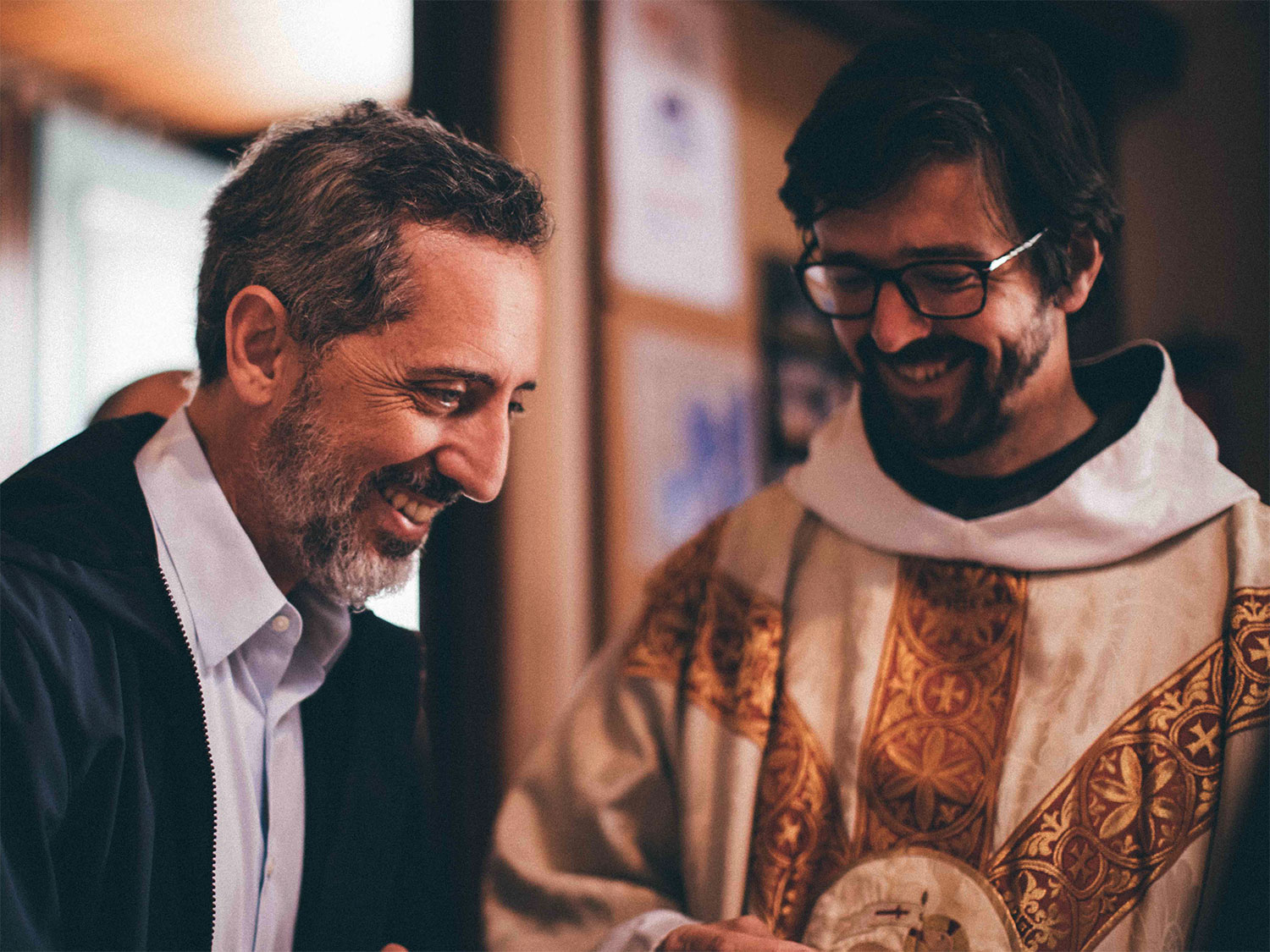
As he progresses toward baptism, Gad bonds further with his friend Sister Catherine and Father Barthélémy. A preliminary class introduces him to the other adults who will join him at the altar. One man, in particular, causes him to reflect more because this is his second conversion, having been raised a Muslim, converted to Protestantism, and not finding a connection will now become Catholic.
Gad retreats deeper into himself. Meeting with his father’s rabbi, he is astounded that the rabbi encourages him to explore his spiritual identity. Simone Weil, the famous philosopher, converted but did not become baptized, he points out. It is not uncommon when one is searching for a path to look elsewhere for spirituality. Astonishingly, the rabbi seems to understand the solace that Gad finds in the Virgin Mary, representing comfort, guidance and support in times of doubt.
The pressure from his parents continues relentlessly. His sister, however, sees him, and sees what he thinks of as his greater need. Ironically, or perhaps not, the greatest understanding comes from the rabbis he consults. They encourage him to dig deeper and ask the profound questions because those questions are his alone. They are not his parents’ questions or those of his friends or even those of Sister Catherine. They are his alone.
Turning 50, he has arrived at a time in his life where he is questioning himself. As his sister wryly points out, it would be so much easier if this were a more typical midlife crisis and he just went out and bought an expensive car.
What, he is constantly asked, is he looking for? As a second rabbi points out, he should not confuse religious spirituality with the community identity associated with a particular religion. The community may offer support, as it does in Judaism, but it is not the source of spirituality. Only you can be the source of your own spirituality. It is a path, but the real question is whether that path is leading somewhere. No one else can answer that question.
Remarkably, even though this is about Gad’s search for his soul under the protection of the Virgin, the most insightful questions, all unanswerable, are asked by rabbis. Father Barthélémy and Sister Catherine represent a faith that is unquestioning or unquestioned. Gad likes the dogmatic approach, but it is in clear conflict with his intellectual perspective. On the one hand, this search is on a higher philosophical plane; on the other, it is strictly about him and who he is. Will his path lead him to answers or to ever more questions? As the second rabbi posits, “Maybe you’re only truly yourself when you’re on a path to elsewhere.” And that is the question, not just for him but for anyone on a spiritual journey. Are you supposed to get somewhere or just keep searching? To have faith is to have doubt.
Elmaleh co-wrote, with Benjamin Charbit, and directed this deep, thoughtful and revealing trip into the nature of spirituality and where it can be found. That it is Elmaleh’s own story adds an even deeper dimension.
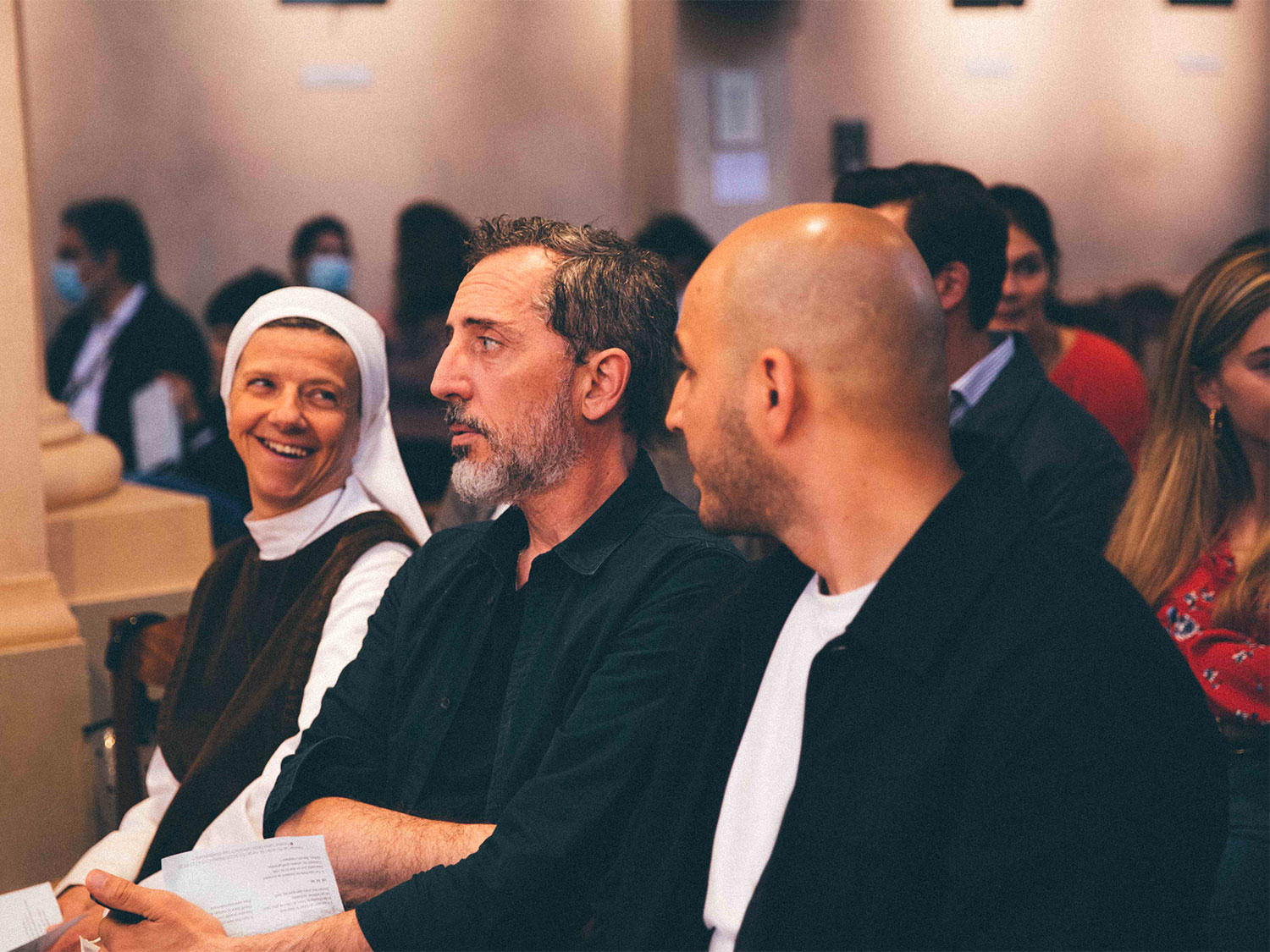
Elmaleh’s parents, Régine and David, and his sister Judith all play prominent roles and their naturalism is an added strength to this resonant story. The distress of his parents comes through loud and clear, as does their love for their son. All are seasoned actors so there is none of the stiffness that one often finds when using relatives in eponymous roles. He also called on close friends to play the other important religious advisors. There is, for the most part, an incredible spontaneity to the interactions. The script is outstanding, raising many philosophical questions, questions that are as resonant for an atheist as they are for a true believer. But most importantly, sentimentality, the death knell of many a spiritual film, is kept at a minimum and always tempered by the incredible humor for which Elmaleh is known.
I found this incredibly moving and filled with questions I wish I had thought to ask long ago. I have always been a fan of Elmaleh, whose movies range from “The Valet’’ to “The Adventures of Tin Tin,” a movie that yields one of the solid laughs in the film. When making a pro and con list about converting, a listing on the con side was that Spielberg would never cast him in another movie.
It is, perhaps, not insignificant that autocorrect tried repeatedly changing Gad to God. No matter your belief structure, you won’t want to miss this one.
In French with English subtitles.
Opening May 17 at the Laemmle Royal and streaming July 26.
Neely Swanson spent most of her professional career in the television industry, almost all of it working for David E. Kelley. In her last full-time position as Executive Vice President of Development, she reviewed writer submissions and targeted content for adaptation. As she has often said, she did book reports for a living. For several years she was a freelance writer for “Written By,” the magazine of the WGA West, and was adjunct faculty at USC in the writing division of the School of Cinematic Arts. Neely has been writing film and television reviews for the “Easy Reader” for more than 10 years. Her past reviews can be read on Rotten Tomatoes where she is a tomato-approved critic.



